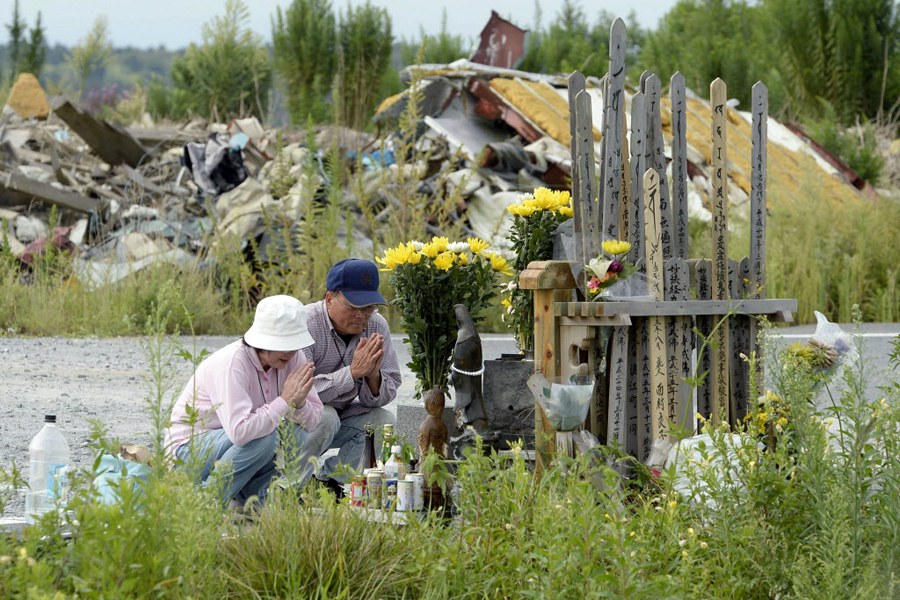Japan nuclear plant radiation cleanup delayed up to three years
Loading...
| TOKYO
Radiation cleanup in some of the most contaminated towns around Fukushima's damagednuclear power plant is behind schedule, so some residents will have to wait a few more years before returning, Japanese officials said Monday.
Environment Ministry officials said they are revising the cleanup schedule for six of 11 municipalities in an exclusion zone from which residents were evacuated after three reactors at the Fukushima Dai-ichi nuclearpower plant went into meltdown following the March 2011 earthquake and tsunami. The original plan called for completing all decontamination by next March.
Nobody has been allowed to live in the zone again yet, though the government has allowed day visits to homes and businesses in some places after initial decontamination, said Shigeyoshi Sato, an Environment Ministry official in charge of decontamination.
"We will have to extend the cleanup process, by one year, two years or three years, we haven't exactly decided yet," he said.
Sato cited several reasons for the delay, including a lack of space for the waste from the decontamination work. Some residents have opposed dumping the waste in their neighborhoods.
The Asahi newspaper reported on Saturday that the government is planning an extension of up to three years in areas such as Iitate, a village northwest of the plant where a highly radioactive plume spread in the first few days of the crisis.
Still, an International Atomic Energy Agency mission that visited the Fukushima area last week highlighted the progress Japan has made in the two years since the team's previous visit.
"The main conclusion of the mission is that Japan has achieved important progress," team leader Juan Carlos Lentijo told a news conference in Tokyo on Monday.
In a preliminary report released Monday, the team noted good progress in the remediation of farmland in some areas, and monitoring that has shown the land can produce food with levels of radioactivity below the permissible level. It also praised Japan's efforts to involve stakeholders, noting that the leadership of some key local figures has helped gained the trust of their communities.
Lentijo also stressed the need to strengthen communication with the public about the decontamination work and the costs and benefits.
The 16-person team of international experts and IAEA staff visited Kawauchi, a village that has been partially opened to residents again. About 40 percent of its population of 3,000 has returned.
Beyond decontamination, other challenges in the affected areas include ensuring food safety and jobs.







